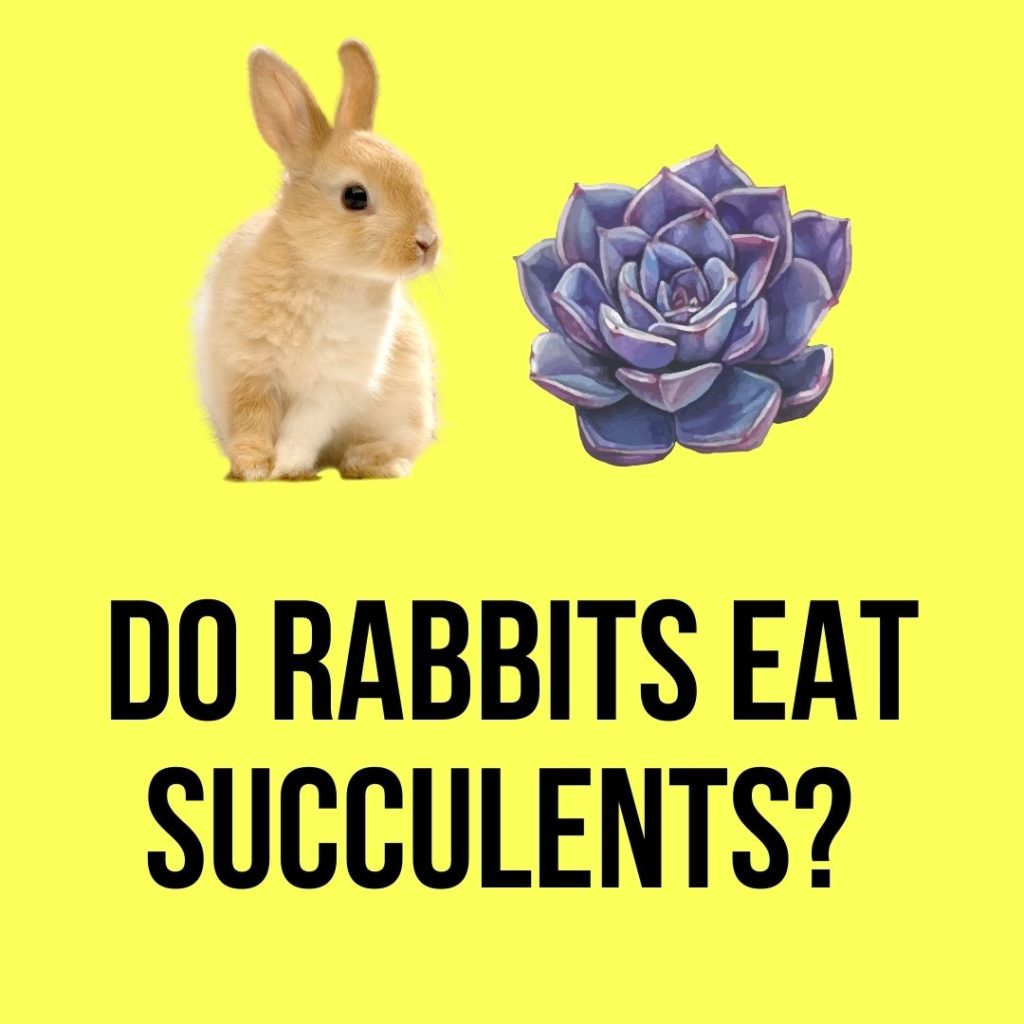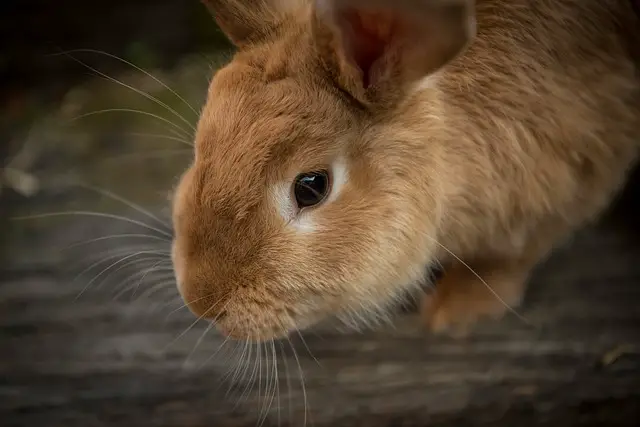Succulents are common in dry places, and they have evolved to survive in those places with harsh weather. The plants store water in their leaves or stem when leaves are absent. The plants have thick fleshy leaves or stems because of the stored water, and their name came from this characteristic.
Do Rabbits Eat Succulents? Today we will focus on this one question and discuss other related questions as well.
Succulents at present are pretty famous as ornamental or decorative plants. The plants are seen in living rooms, workspaces, and various other indoor environments. They are sometimes even seen in gardens because succulents are not limited to indoor plants. There are more than 60 plant families that fall under succulents. The term covers small plants like Living Stones (Lithops), and the Baobab tree is considered a giant succulent. So, succulents can vary in size and the environment they thrive.
There are many succulents gardens these days. They are organized with succulents that can grow in big spaces and outdoors. The gardens are easy to take care of as long as the succulents are planted in a favorable atmosphere. Succulent gardens do well with little water and have no natural pests or insects as enemies. However, if you live in an area that has wild rabbits and the garden is not protected, you might start to see rabbit attacks on your plants.

Do Rabbits Eat Succulents?
The most common type of wild rabbit in the U.S. is the Cottontail. Depending on the area, there may be various other kinds of rabbits, but they are the usual attackers. Typically rabbits will not harm succulents, but if there are no alternative food sources, succulents will suffice. They are animals with small stature, and if you see clean 45-degree bite marks on the stems or leaves, there is a high possibility its rabbits. The Cottontail rabbits have a height of 7 to 9 inches so that they will bite the bottom of the plants.
Rabbits are not messy eaters, unlike deer. Deer mainly eat and mess up plants thoroughly, but rabbits will nibble and leave the plant standing. However, if there is a pack of rabbits, it is a different thing altogether. They are the worst-case scenario.
Proxy Gardens
As we have learned earlier, succulents are not on top of a rabbit’s menu. They will go for succulents only when there are no other foods available. So, you can plant a garden of vegetables that will serve as food for the rabbit. This is a way where both parties can co-exist. You can plant vegetables such as carrots, tomatoes, cabbages, etc. The rabbits will not go through your succulents’ garden again.
However, you will always have to harvest vegetables, or the rabbits might turn on your succulents. That also means growing vegetables in winter; the approach is worth it if you do not want to take any offensive measures.
Rabbit Proofing Garden
Making the garden rabbit-proof is another effective way. Contrary to popular belief, they are not good jumpers. You can build short fences around your succulent garden and be stress-free about rabbit attacks.
There is also a big possibility that you are to blame for the rabbit infestation. Rabbits like shrubs, place with sheds, and by not clearing your garden spaces, you make a living habitat for rabbits. So, clear hedgerows, shrubs, and possible places rabbits can use as their home. These simple tasks can ensure your succulents and rabbits stay far from each other.
Rabbit Deterrent
There are some products that you can use to keep rabbits at bay. Bone meal is such a product; they are made from defatted, dried animal bones. They are fine powders and are used as calcium fertilizers. Rabbits are herbivores, and the scent of bone meal is not their favorite, so they work as a good rabbit deterrent.
However, the smell of bone meal is not good to humans either; they smell pretty bad, even to us. So, think carefully if you want to choose this option.
Rabbit Hunting
Last but not least, hunting rabbits. Rabbits are fast and agile, but people do hunt them. However, it is usually done by traps, not guns. So running after them with a gun might seem like the end of your headache, but they are not that easy to hit. Also, if you find a flock of them when expecting one or two, that may become a giant headache.

Although hunting them is not recommended because disposing of the carcasses is a hassle. Moreover, the whole process is troublesome, and the rabbits are not exactly doing it for the thrills either. They look for food sources, and your succulent garden might be the most accessible one. If you have a dog, let them run around the garden daily, rabbits and dogs are not on the best term, which might stop them from attacking your garden.
Succulents and Pet Rabbit
Your pet might be a rabbit, and you think your indoor succulents might harm your rabbit. Succulents are not appetizing to rabbits and many other pets. They instinctively avoid succulents. It might be because of a particular smell or the liquid. However, most succulent families are harmless, but they are sometimes slightly toxic, like the Jade plant. That does not mean animals nibble on them and get affected.
Most pets, including rabbits, avoid succulents. If your rabbit is fed well, it should not have any reason to nibble on your succulent. But if you want safer options, Aloe vera, Euphorbia, Kalanchoe, String of pearls, etc., are good options.
Conclusion
Succulents are plants that can create a serene and green environment very quickly. These plants are easy to take care of as long you provide a favorable environment and live for 3 to 4 years. However, they grow offsets to propagate, and you can have baby succulents that you can take care of. These plants keep on giving but need necessary care. So, it is recommended that before you get into the hobby, you learn about different aspects of succulents.
![Do Rabbits Eat Succulents? Easy Answer [2023]](https://gardeningforu.com/wp-content/uploads/2022/04/Do-Rabbits-Eat-Succulents.jpg)